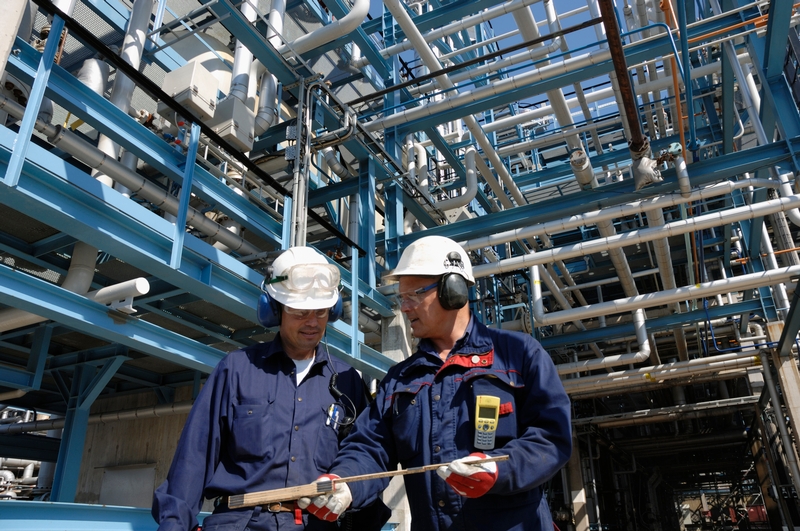Session Chairs:
- Mariella Juhasz, DuPont
- Stacie Santhany, The Dow Chemical Company
Session Description:
Developing sustainable processes is key for the long term viability of our products. As process chemists and engineers working on process development, we have an opportunity to influence the environmental impact of our processes and products by performing early life cycle assessments to guide research and development efforts toward the selection of the most sustainable process options. Additionally, LCA can be used in conjunction with techno-economic analysis to provide cost effective solutions with reduced environmental impacts. This session will showcase examples of how and why life cycle analysis is an important metric for shaping the development of a process or product.
Schedule:
| PRESENTATION | SPEAKER |
| LCA and Process Development: Start Simple, Think Big! |
Richard Helling, The Dow Chemical Company |
|
Bill Flanagan, General Electric Company |
|
|
Including Ecosystem Services for Developing Innovative Processes and their Life Cycles |
Bhavik R. Bakshi, The Ohio State University |
Abstracts:
LCA and Process Development: Start Simple, Think Big!
Richard Helling, The Dow Chemical Company
Chemical engineers play a vital role in finding solutions to global challenges through their work on process development projects. The essential first step is to take a life cycle view of the chemical process, looking beyond the boundaries of the chemical plant at the sources of energy and raw materials, the fate of emissions and wastes, and the potential impacts of the product being produced. This step can be taken using simple tools and calculations or by conducting a rigorous life cycle assessment (LCA). An important next step is to put project in the context of global sustainability by considering the possible market-level impacts of the process technology. The presentation will cover LCA concept, examples of life cycle thinking and LCA applied to process development and the incorporation of market-level estimates of project benefits and tradeoffs. These help focus efforts on projects and design considerations that most rapidly advance the transition to a sustainable planet and society.
An Environmental Life Cycle Assessment Comparison of Single-Use and Conventional Process Technology for Biopharmaceutical Development and Manufacturing
Bill Flanagan, General Electric Company
Biopharmaceutical development and manufacturing require scalable processes that can be quickly developed, easily implemented, and smoothly transferred to production. The use of single-use technologies within the biopharmaceutical industry continues to increase as these technologies provide important flexibility for bioprocessing. Meanwhile the world continues to face mounting pressure related to a variety of environmental concerns including climate, water scarcity, and other resource availability issues. Rapid shifts in technology or technology adoption present an opportunity, and an obligation, to evaluate sustainability implications.
We will present comparative studies of the environmental impacts of producing monoclonal antibodies using either single-use or traditional process technology. The studies are based on Life cycle assessment (LCA) methodology. LCA considers environmental impacts across the entire life cycle of each process component, from material extraction and refining through component manufacturing, packaging, distribution, use, and disposal at end-of-life.
The results from the first study indicate that the single-use process train exhibits lower environmental impacts compared to the traditional process train, primarily due to a reduced need for large amounts of energy-intensive water-for-injection, process water, and clean steam. In the second study a more detailed investigation is performed, with some of the latest single-use technologies. A variety of end-of-life treatment options for single-use components is assessed. Implementation of single-use process technology in existing facilities as well as in standalone turnkey facilities in multiple global regions will be explored.
Including Ecosystem Services for Developing Innovative Processes and their Life Cycles
Bhavik R. Bakshi, The Ohio State University
Sustaining industrial and human activities is not possible without ecosystem goods and services such as cycling of nutrients, pollination, and regulation of air and water quality. Despite their importance, the capacity of ecosystems to provide such services continues to be undervalued or ignored. This raises possibilities of unintended harm and missed opportunities for innovative solutions that benefit from the ability of ecosystems to satisfy human needs. This talk will describe the framework of techno-ecological synergy for including the role of ecosystems in chemical manufacturing and sustainability assessment. Designing a biodiesel manufacturing process with on-site ecosystems will demonstrate innovative opportunities for approaching net zero emissions. Accounting for ecosystem capacity in LCA will help identify novel opportunities for developing circular systems with net positive impact.

